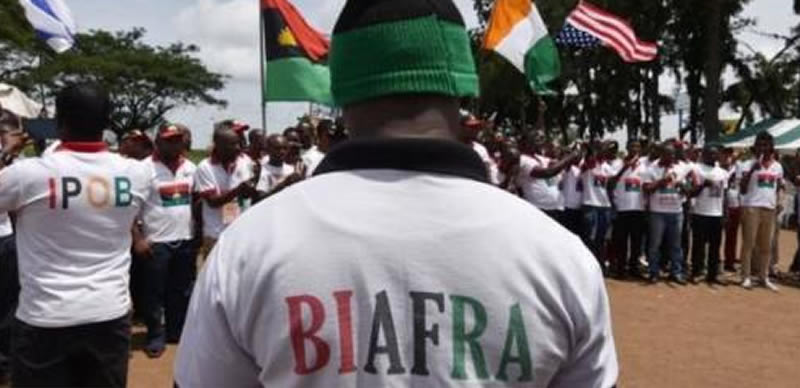The Indigenous People of Biafra (IPOB), a separatist group advocating for the independence of Biafra from Nigeria, has initiated a legal battle at the Supreme Court, challenging its proscription as a terrorist organization. This appeal stems from a series of judicial decisions that have consistently ruled against IPOB, culminating in the Court of Appeal’s affirmation of its terrorist designation. IPOB’s persistent legal challenges underscore its unwavering commitment to overturning the government’s classification and regaining its legitimacy as a political movement. The crux of IPOB’s argument revolves around the alleged violation of its constitutional rights and the misapplication of legal principles in its proscription.
The legal saga began in 2018 when Justice Abdu-Kafarati of the Federal High Court in Abuja proscribed IPOB, declaring its activities illegal and a threat to national security. This decision effectively criminalized the group’s operations, particularly in the South-East and South-South regions of Nigeria, where it enjoys significant support. IPOB, dissatisfied with the High Court’s ruling, appealed to the Court of Appeal, seeking to overturn the proscription. However, the appellate court upheld the lower court’s decision in January 2025, further solidifying the government’s stance against the group. The Court of Appeal concurred that IPOB’s activities posed a significant threat to Nigeria’s stability and the safety of its citizens, justifying the proscription.
Undeterred by the setback at the Court of Appeal, IPOB has taken its fight to the Supreme Court, Nigeria’s highest judicial authority. In its appeal filed in February 2025, IPOB argues that the lower courts erred in law and violated its fundamental rights. The group contends that the process leading to its proscription was flawed and lacked due process, contravening constitutional provisions. Specifically, IPOB challenges the assertion that its activities constitute a threat to national security, arguing that this claim has been used to unjustly suppress its right to self-determination and freedom of expression.
Central to IPOB’s appeal is the argument that the courts misapplied the principle of national security to override its right to a fair hearing. The group maintains that the government failed to demonstrate a clear and present danger posed by its activities, a necessary condition for restricting fundamental rights under the Nigerian Constitution. IPOB further asserts that the Court of Appeal lacked the jurisdiction to declare a state of emergency or to assess national security threats as a basis for denying its right to a fair hearing. This, IPOB argues, constitutes a usurpation of the executive branch’s powers and a violation of the principle of separation of powers.
IPOB’s legal counsel, Aloy Ejimakor, has emphasized the constitutional requirement for a presidential declaration of a state of emergency before any restrictions on fundamental rights can be implemented. He argues that the proscription of IPOB without such a declaration is unconstitutional and invalid. Furthermore, IPOB contends that the Court of Appeal’s decision infringed upon non-derogable constitutional provisions that prohibit discrimination based on ethnicity, origin, or political opinion. By proscribing IPOB, the government, according to the group, is effectively targeting a specific ethnic group for its political beliefs, thereby violating their fundamental rights.
Beyond the Nigerian Constitution, IPOB’s appeal also invokes international human rights instruments, specifically Article 20 of the African Charter on Human and Peoples’ Rights. This article recognizes the right of oppressed or colonized people to self-determination, a right that IPOB asserts is being denied to the Igbo people of Biafra. IPOB’s reliance on international law highlights its efforts to frame its struggle within a broader human rights context, seeking international recognition and support for its cause. The Supreme Court’s decision in this case will have significant implications for the future of IPOB, the Biafran separatist movement, and the interpretation of fundamental rights in Nigeria.


